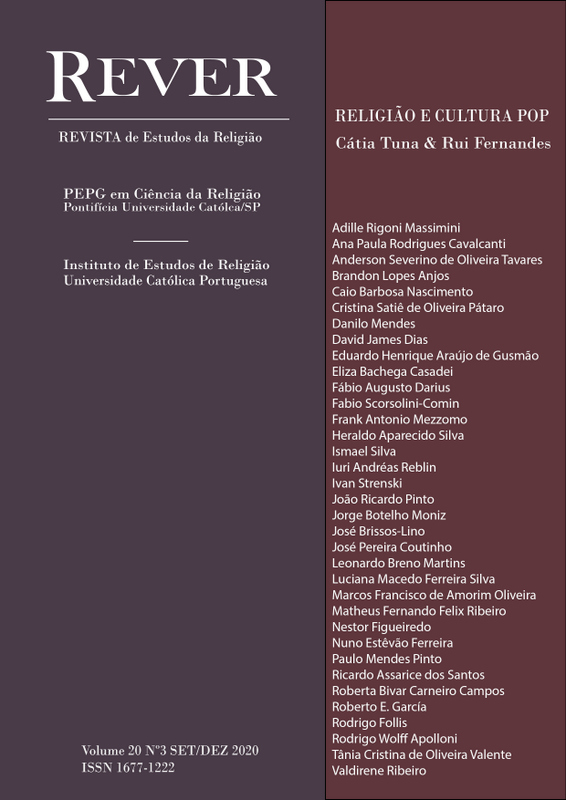Theodicies in The Lord of the Rings
DOI:
https://doi.org/10.23925/1677-1222.2020vol20i3a4Keywords:
Theodicy, Lord of the Rings, Metanarrative, Film analysisAbstract
This article focuses on the theodicy concept that emerges from the work construction of The Lord of the Rings, by J. R. R. Tolkien. We compared the theorization issued by Collin Campbell regarding a supposed western theodicy change, which was being influenced in culture and religion to adhere to a concept of epistemologically oriental origin. It was realized that despite the apparent possibility of a pluralization in theodicy construction, which would corroborate Campbell’s premise, it is not possible to accuse Tolkien or Jackson of escaping a traditional theodicy construction from the western perspective. However, it is possible to argue that, although the construction of the narrative itself does not have orientalist traits, its reception was not necessarily seen in this way, which was not the object of the present study, but shows interesting perspectives and developments of this discussion.
Downloads
Published
How to Cite
Issue
Section
License
Authors who publish in this journal agree with the following terms:- Authors retain copyright, but grant the journal the right of first publication, with the work simultaneously licensed under the Creative Commons BY-NC License.
- Authors are authorized to assume additional contracts separately, for non-exclusive distribution of the work published in this journal (e.g., publishing in an institutional repository or as a book chapter), as long as with acknowledgment of authorship and first publication in this journal.


